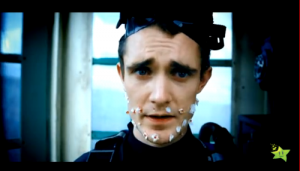Over the Rainbow: Selling the National Lottery in Post Celtic Tiger Ireland
It would be hard to overstate the seriousness of the financial crisis that is currently being faced by the people of Ireland. With an intensely oligopolistic financial and social structure, a government that is extraordinarily deferential to the interests of financial institutions, and a budget deficit soon to be running at more than one-third of the national income, all indications are that a country that has already instituted sweeping cuts (and that was just a few years ago being touted as the scene of an economic miracle dubbed “the Celtic Tiger”) must now brace itself for a turn toward real national misery. On Friday an editorial in The Guardian noted that Ireland “will soon hold the dubious honour of hosting the biggest property bubble and bust in modern history. . . Like a body flung off the roof of a skyscraper, the Irish economy has just kept on falling.”
In a cultural climate in which many now pick up a newspaper or turn on the nightly news with a strong sense of foreboding, a distinctive new ad has appeared in cinemas, run before every feature film I’ve gone to see in recent weeks. Each time the ad runs, the audience distinctly quiets and there is an almost audible sense of pleasure in the theatre. With a population of two and a half million, Dublin is still a small enough media market that its urban population is comparatively unused to seeing itself on screen and is certainly not in the habit of seeing its local geography so carefully and stylishly rendered. In a September 29 comment accompanying the ad on YouTube, Xxandrew269 wrote that it “makes me proud to be Irish.”
There are, it seems to me, a number of elements working here to create an ad that is both wholly of its time and intensely ideologically manipulative. Most obviously Elvis Presley’s “Pocketful of Rainbows” offers lyrical reassurance in tough times (“Mister Heartache/I’ve got a way to make him leave/Got a pocketful of rainbows/Got a star up my sleeve”). Less apparent perhaps is the affective impact of Elvis’ creamy delivery in a national culture that has a warm, enduring relationship to Americana (and where hopes that Irish-American ties may buoy the nation in its current downtown are a stock element in media coverage of the sinking Irish economy). (In its oblique referencing to The Wizard of Oz the ad also speaks to the desire for an elsewhere, a desire that it seems many Irish people are acting on as emigration rates, particularly amongst the young, rise dramatically). Strikingly, the ad’s rainbow imagery draws from an image repertoire that has long been used to sentimentalize Irishness abroad and the fact that such images are now being deployed “at home” seems significant, particularly given the well-developed radar of most Irish people for saccharine images of twee Irishness.
The Dublin represented by the ad is notable for two particular features – its heavy visual concentration on the corporate city centre (privileging locations like the newly-opened Convention Centre and the Samuel Beckett Bridge in particular and the International Financial Services Centre and Docklands districts in general) and its careful multiculturalism – two elements that were central to Ireland’s economic transformation and self imaging during the Celtic Tiger years. Thus, the ad’s transfixing effect on audiences is rooted partly in its symbolic reinstatement of the social and economic conditions of the boom. Tellingly, other current tv and radio ads for the National Lottery take a harsher tone, featuring a set of fictional testimonials about the lengths to which people would go in jeopardizing or embarrassing themselves to win millions of Euros.
Even more significant I think is the ad’s staging of a public warmly joining together to admire an artificially manufactured rainbow. In this sense the ad betrays its investment in the idealization of a distractible, complacent public and becomes an unwitting commentary on a set of national cultural conditions that once fed an unsustainable boom and now operate to quell public protests against state-supported corporatism. The first time one watches the ad, its visual, musical and civic pleasures are to my mind devastatingly unravelled with the closing appearance of the National Lottery logo and attendant invocation of the arbitrary financialism that currently prevails in Ireland.




Thanks for this great piece, Diane. It is certainly a stunning advert, which of course makes its project all the more insidious. I particularly like your closing reading of the false rainbow–an illusion that, in addition to its investment in a gullible public, also gives the lie to the ad’s own distractions and manipulations.
Wonderful post, Diane! I remember watching this ad when I went to see I’m Still Here at the IFI last week. While sitting through the ad, my thought process went something like this: “Hey, it’s Dublin. Cool. Hey, it’s not cloudy or raining. Wow. Ugh, you’ve got to be kidding me. A lottery commercial!” Your reading here captures the troubling politics of the ad very well.
Diane,
I have a question. In my brief research into/googling about my Northern Irish roots, I always noticed that Elvis was referenced on websites about the Scotch Irish or Ulster Scots. Scottish Irish groups like to claim him as a descendant. Are there still tensions between Irish Catholics and Northern Irish Protestants that would make Elvis’ song here a bizarre choice, or are those tensions no longer existent?
Thanks Evan and Jon. It certainly speaks to the ad’s ubiquity, Jon, that you were in Ireland a few days and you saw and noticed it. That is interesting about Elvis. I think he did have Scots-Irish ancestry. If he did\does have an ethnically-sourced iconicity for Ulster Protestants, I doubt that would impinge on his meanings outside the North (though I wouldn’t claim expertise on this).
Thanks for the response, Diane. This ad certainly wows, and you offer a smart and necessary critical read of it.